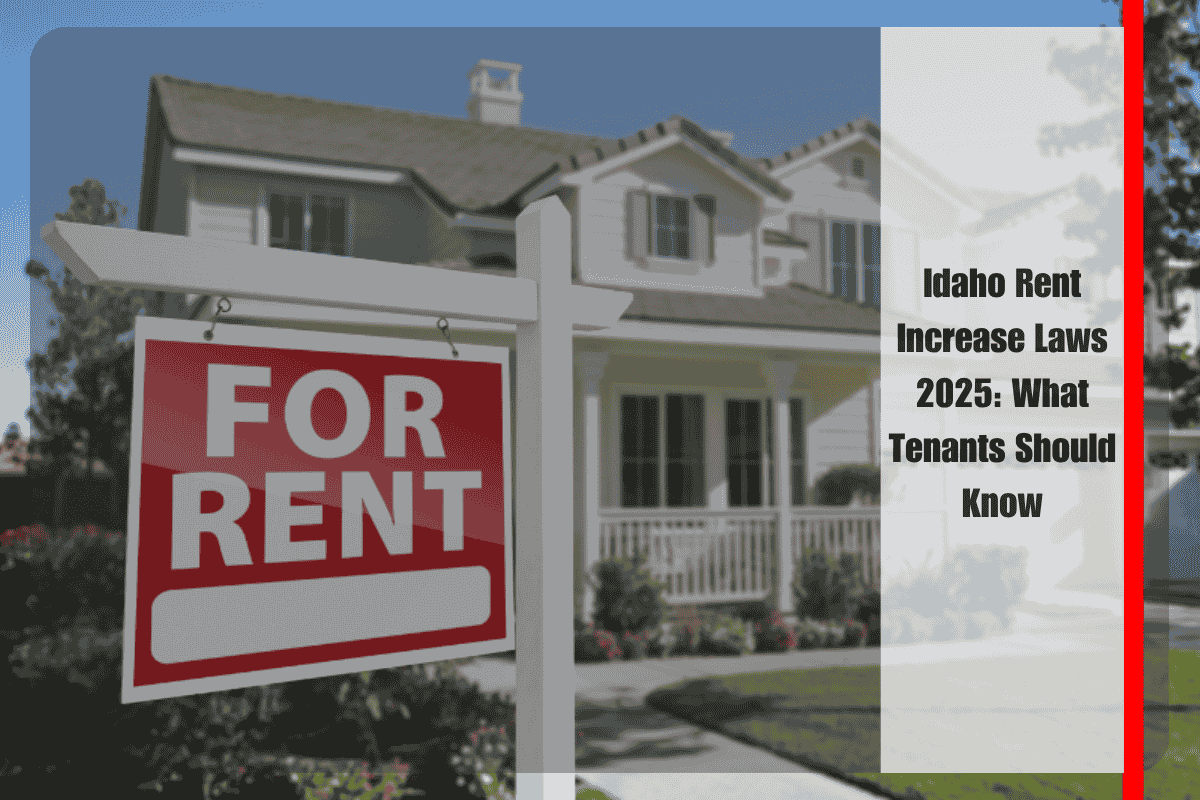Rent increases can be a source of concern for tenants, especially when they come unexpectedly or seem too high. In Idaho, like in many other states, rent laws are in place to protect both landlords and tenants. As of 2025, it’s important for tenants to understand their rights and the limits on how much rent can be increased. This article will provide an overview of the rent increase laws in Idaho for 2025, so tenants can stay informed about what to expect when it comes to rent hikes, the notice period required, and any other protections that may be in place.
Idaho Rent Increase Laws in 2025: The Basics
In Idaho, rent increases are governed by the terms of the lease agreement between the tenant and the landlord. For month-to-month rental agreements, landlords have the right to raise the rent, but there are specific guidelines they must follow. For fixed-term leases, such as annual agreements, the landlord can only increase the rent once the lease ends, unless otherwise specified in the contract.
The Idaho Code outlines several important rules regarding rent increases, including the amount of notice a landlord must give tenants before raising the rent and any restrictions on how often rent can be increased.
Notice Period for Rent Increases
One of the key protections for tenants in Idaho is the requirement for a notice period before a rent increase can take place. For tenants with month-to-month leases, the landlord must provide a 30-day written notice of any rent increase. This means that before any rent hike goes into effect, the tenant must be informed at least 30 days in advance. This gives tenants time to plan and either adjust their budget, negotiate, or look for alternative housing if the rent increase is too high.
For fixed-term leases, rent cannot be increased until the lease term ends, unless the lease itself allows for rent adjustments during the term. Once the lease expires, the landlord can propose a new rent amount for the next term. If the tenant chooses to renew the lease, they will have to agree to the new rent terms.
Rent Control and Limits in Idaho
Unlike some other states, Idaho does not have statewide rent control laws. This means that landlords are generally allowed to set the rent at whatever level they choose, as long as they comply with the notice requirements. There are no limits on how much the rent can be increased at the end of a lease term or after the required notice period for month-to-month tenants.
However, local jurisdictions such as cities or counties may have their own ordinances regarding rent increases or tenant protections, though this is rare in Idaho. Tenants should check with local authorities to see if any specific rules apply in their area. Even in the absence of rent control laws, tenants still have the right to challenge an unfair or excessively high rent increase through legal means, though this typically requires proving that the increase is unreasonable or violates other tenant protections.
Unlawful Rent Increases
While landlords in Idaho are generally allowed to increase the rent, there are specific situations where a rent increase could be considered unlawful. For example, rent hikes based on discrimination or retaliation are prohibited. Landlords cannot increase the rent as punishment for a tenant exercising their legal rights, such as filing a complaint about unsafe living conditions or joining a tenant organization.
Additionally, rent increases that violate the terms of the lease or fail to provide the required notice could be challenged in court. For example, if a landlord tries to raise the rent without giving the required 30-day notice for a month-to-month tenant, the tenant may have grounds to dispute the increase.
What Tenants Can Do About a Rent Increase
If a tenant in Idaho feels that a rent increase is too high or unfair, they have several options for responding. First, they can negotiate with the landlord. It’s not uncommon for tenants to successfully negotiate a smaller increase, especially if they have been good tenants who pay on time and take care of the property.
If negotiation doesn’t work, tenants can also explore whether the rent increase is in violation of any terms in the lease or local laws. If there is reason to believe the increase is illegal, tenants can file a complaint with a local tenant’s rights organization or consult with a lawyer.
If the tenant does not agree to the new rent terms and wishes to move out, they must ensure that they provide proper notice to the landlord. For month-to-month leases, this typically means giving 30 days’ notice before moving out, while for fixed-term leases, tenants should follow the termination process outlined in the lease.
What to Expect in 2025
As of 2025, the Idaho rent increase laws are relatively straightforward, but the housing market continues to evolve. Tenants should stay informed about any local changes in rental laws, as some cities may introduce new protections or guidelines to help residents deal with rising rents. It’s also important for tenants to be aware that rent increases may become more common as the housing market fluctuates, particularly in areas with limited rental properties.
For tenants in Idaho, understanding the state’s rent increase laws in 2025 is essential to navigating the rental market. While landlords have the right to raise rent, they must provide a 30-day notice for month-to-month leases, and they cannot increase rent during a fixed-term lease unless the lease allows it. Tenants do not have protections like rent control, but they can challenge unlawful or unfair rent increases. By staying informed and knowing your rights, you can ensure that any rent increase is handled fairly and according to the law.
Sources
[1] https://www.hemlane.com/resources/idaho-rent-control-laws/
[2] https://www.steadily.com/blog/rent-increase-laws-regulations-idaho
[3] https://www.doorloop.com/laws/idaho-landlord-tenant-rights
[4] https://innago.com/idaho-landlord-tenant-laws/
[5] https://legislature.idaho.gov/wp-content/uploads/sessioninfo/2025/legislation/S1043.pdf












